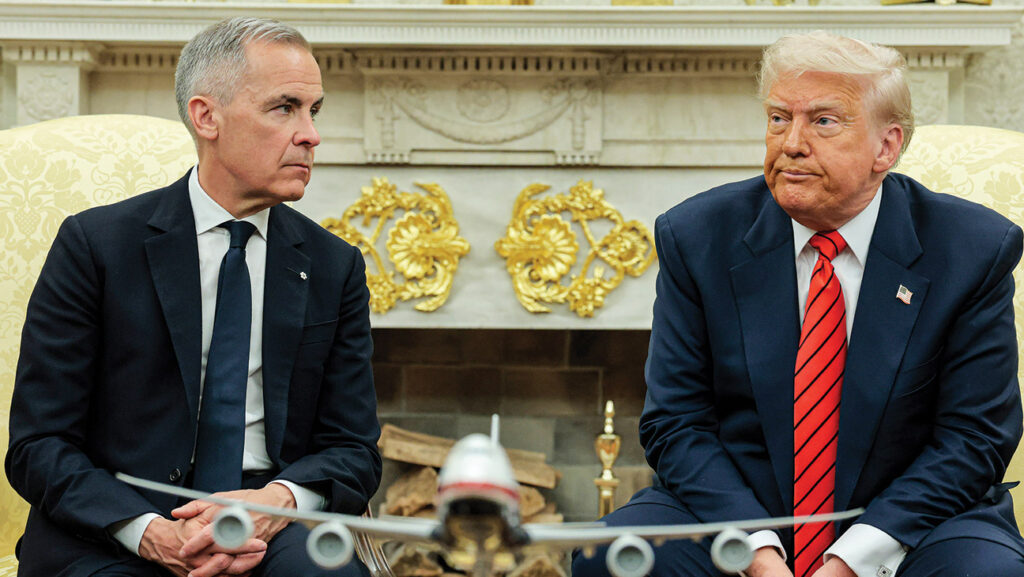Donald Trump‘s threat ahead of Cannes to impose a 100 percent tariff on films made outside of the U.S. has so far — perhaps unsurprisingly — faded without concrete policy action. But the turbulence of the president’s global trade war and a rollback of DEI initiatives could still cloud the Toronto International Film Festival.
“The dollar shift and the current trade wars are absolutely felt in our industry,” says Canadian director Panta Mosleh, who has helmed TV movies for Hallmark, A&E and Lifetime out of Vancouver.
The dollar has dropped more than 10 percent against a basket of major currencies this year, a slide many blame on Trump’s radical trade agenda. A weaker greenback means Hollywood budgets won’t go as far abroad. While unlikely to spark an immediate reshoring of U.S. productions, it could encourage cuts as studios and streamers weigh where to spend.
“A weakened U.S. greenback, combined with Trump’s trade-war uncertainty, has sparked a massive ripple effect of destabilization across the industry,” echoes TIFF attendee Lowell Schreider, division director, Canada, for U.K.-based CK Talent Management.
Trump’s erratic trade policies have sown confusion among international financiers. British filmmaker Stephen Woolley (Carol, The Crying Game) has warned that tariffs, if imposed, could choke an already fragile indie sector. “The insidious message behind this,” Woolley told The Guardian, “is that Trump’s brain trust could make it really difficult for the already beleaguered independent film industry, in the U.S. and globally, to continue making original and innovative films, especially with a propaganda watchdog on their backs.”
Philippa Childs, head of British media and entertainment trade union Bectu, echoed those fears shortly after the Trump tariff proposal was floated: “These tariffs, coming after COVID and the recent slowdown, could deal a knockout blow to an industry that is only just recovering.”
Beyond trade, there are more concrete challenges. Case in point: The Trump administration’s crackdown on diversity, equity and inclusion policies already threatens sales of indie content into the U.S. market.
“The risk is real. When projects rely on U.S. financing or need to sell into that market, pressure can creep in to soften or sideline DEI principles,” warns Joan Jenkinson, CEO of the Black Screen Office.
The BSO, whose Black Canadian creators will be out in force during TIFF, has been working to chip away at systemic racism to get more authentic, diverse stories told and sold worldwide.
Kerry Swanson, CEO of the Indigenous Screen Office, Canada’s film financier for First Nations filmmakers, adds that Indigenous storytellers won’t stop their fight for greater representation amid the U.S. DEI pullback: “It’s clear audiences are hungry for these stories.”
Industry leaders doubled down on DEI commitments at the Banff World Media Festival, even as U.S. giants appeared to roll back their own policies to appease Trump.
Says Tanya Talaga, founder of Makwa Creative and producer of Ni-Naadamaadiz: Red Power Rising, which is set for a TIFF world premiere: “Hollywood has a role to play in reconciliation [over the generational effects of colonization on Indigenous peoples], and it would be a game-changer if they recognized it and stepped up.”
This story appeared in the Sep. 3 issue of The Hollywood Reporter magazine. Click here to subscribe.

